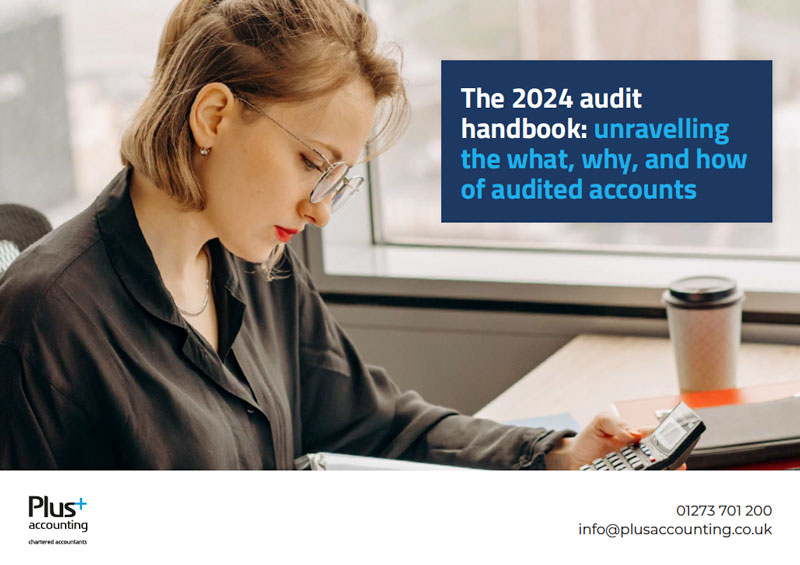What are the changes to the Audit Thresholds?
As we move into the end of the year, businesses across the UK need to stay informed about regulatory changes that might impact their operations. One such change, on 6th April 2025, involves the audit thresholds and company size thresholds—an aspect of proposed regulatory updates aimed at reducing administrative burdens for businesses. These adjustments could potentially allow a significant number of companies to reclassify their size category, thus easing their reporting obligations and streamlining corporate reporting requirements. In this blog, we’ll explore the upcoming changes, their potential impact on your business, and why audits remain crucial even as thresholds evolve.
Changes to Audit Thresholds
While specific details about the upcoming changes to audit thresholds are still to be announced, there are strong indications that the UK government plans to increase these thresholds. The aim is to reduce the regulatory burden on small to medium-sized enterprises (SMEs) and encourage growth by exempting more companies from the statutory audit requirement. Additionally, changes to monetary thresholds affecting non-financial reporting requirements are now expected to take effect on April 6, 2025, (previously October 1st 2024) simplifying the reporting process for many companies.
The new audit thresholds are:
Micro
- Less than £1 million annual turnover, less than £500,000 gross assets, less than 10 employees
Small
- Less than £15 million annual turnover, less than £7.5 million gross assets, less than 50 employees
Other proposed changes include:
- Increasing the average employee numbers threshold for medium-sized enterprises from 250 to 500
- Removing the requirement for medium-sized enterprises to prepare a strategic report
- Exempting smaller public interest entities from audit tender
- For many businesses, this could mean a welcome reduction in compliance costs. However, it also raises important considerations for companies that might find themselves no longer required to undergo an audit due to the revised small company thresholds outlined in the Companies Act 2006.
Audit Thresholds (as of 6th April 2025)
| Micro | Small | Medium | |
| Turnover | £1m | £15m | £54m |
| Gross Assets | £500k | £7.5m | £27m |
| Employees | 10 | 50 | 250 |
What Were Audit Thresholds in Financial Reporting?
Audit thresholds refer to the financial benchmarks set by the government, which determine whether a company is required to undergo a statutory audit. Currently, a business is required to have an audit if it meets two out of three of the following criteria:
- An annual turnover of more than £10.2 million
- Gross Assets worth more than £5.1 million
- 50 or more employees
However, these monetary thresholds, which determine company size and audit requirements, are subject to change, and businesses need to be prepared for the potential impact of any adjustments.
Audit Exemption and Reduced Transparency
While the increased audit thresholds may offer cost savings, they could also lead to reduced transparency in financial reporting. Without the requirement for a statutory audit, some SMEs might not provide the same level of financial scrutiny, potentially affecting confidence among stakeholders, including investors and lenders. This reduced transparency could pose challenges for businesses looking to attract investment or secure funding.
However, SMEs have the option to opt for voluntary audits to maintain robust financial health and investor confidence. Voluntary audits can provide a clear and independent analysis of a business’s financial standings, which can be invaluable for building trust with stakeholders. By choosing to undergo a voluntary audit, SMEs can balance the benefits of reduced audit costs with the need to maintain transparency and stakeholder confidence. This strategic decision can help businesses continue to attract investors and secure funding, even in the absence of a statutory audit requirement.
How Will These Changes Impact Your Business?
- Cost Savings: With the upcoming changes to statutory audits taking effect in April 2025, many small and medium-sized enterprises (SMEs) will become exempt from mandatory audits due to increased audit thresholds. This legislative shift is expected to result in significant cost savings for businesses, as audits can be expensive, particularly for smaller companies. Being exempt could free up resources that can be reinvested into the business.
- Investor and Stakeholder Confidence: Companies that are no longer required to have an audit might face challenges in maintaining investor and stakeholder confidence. Audits provide an independent assessment of a company’s financial health, which can be reassuring for investors, lenders, and other stakeholders.
- Potential for Reduced Financial Oversight: Without the necessity of an audit, there is a risk that some companies might not maintain the same level of financial scrutiny. This could lead to issues such as undetected errors or even fraud, which could have significant long-term repercussions.
- Growth Considerations: If your business is on a growth trajectory, it’s important to consider how these changes might impact your future needs. As your company grows, you may once again meet the audit thresholds.
Why Voluntary Audits Still Matter
Even if your business is no longer required to conduct a statutory audit, there are several reasons to consider continuing with a voluntary audit:
- Enhanced Financial Discipline: Audits help maintain a high standard of financial management and control within your business. This discipline can be invaluable, particularly during periods of growth or market volatility.
- Building Trust with Stakeholders: An audit provides an external validation of your financial statements, which can help build trust with stakeholders, including investors, creditors, and customers.
- Preparing for Future Requirements: Voluntary audits can help ensure that your company is prepared for future regulatory changes or growth that might bring you back within the audit threshold.
- Mitigating Risks: Regular audits can help identify and mitigate potential risks, such as fraud or financial misstatements, before they escalate into more significant problems.
Implementation and Next Steps
The changes to the audit thresholds are set to take effect for financial years starting on or after 6th April 2025. SMEs should take this time to review their current reporting obligations and assess how these changes will impact their business. It’s important for businesses to understand whether they will be affected by the new thresholds and to seek personalized advice and support from audit experts.
SMEs are encouraged to contact their usual advisors or audit partners for guidance on the new legislation and its implications. Additionally, businesses should stay informed about other proposed changes on the horizon, including potential adjustments to financial reporting requirements and the definition of a medium-sized company. By staying proactive and seeking expert advice, SMEs can navigate these changes effectively and ensure they remain compliant with the evolving regulatory landscape.
While the upcoming changes to audit thresholds might provide some businesses with short-term cost savings, it’s essential to consider the broader implications of stepping back from regular audits. Maintaining a voluntary audit, even when not legally required, can be a strategic decision that supports long-term financial health, stakeholder confidence, and business growth.
At Plus Accounting, our Audit & Assurance Hub is here to help you navigate these changes. Whether you fall within the current audit thresholds or anticipate being affected by the upcoming adjustments, our team can provide the guidance and support you need to make informed decisions that align with your business objectives.
If you have any questions about how these changes might impact your business or would like to discuss the benefits of voluntary audits, please don’t hesitate to contact us.
Want to learn more?
Get in touch with our in house expert Chris Morey to see how we can help.

The Audit Handbook: unravelling the what, why and how of audited accounts
September 19, 2023
Let’s take a step back and take a look at the what, why and how of audited accounts in your complete guide to audits.


